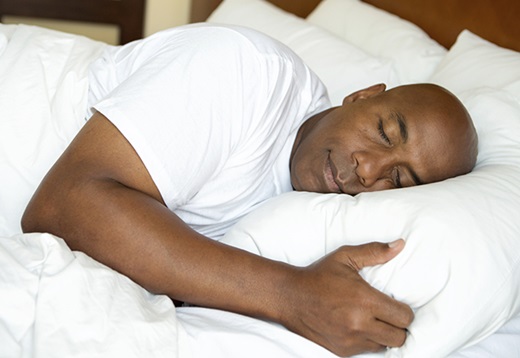
Sleep, according to the online Merriam-Webster dictionary, is ‘the natural, easily reversible periodic state of many living things that is marked by the absence of wakefulness and by the loss of consciousness of one’s surroundings, is accompanied by a typical body posture (such as lying down with the eyes closed), the occurrence of dreaming, and changes in brain activity and physiological functioning.’ Here, the body is usually not awake with the eyes closed, dreams may be experienced, and the brain turns out to be restive, not calculating or scheming plans.
Most adults require 7 or more hours of good-quality sleep regularly.
Sleeping enough doesn’t depend on the total hours of sleep one gets. Rather, it is also important to get good-quality sleep on a regular basis, as it allows one to feel well-rested after waking up.
Any difficulty encountered before or during sleep (inability to sleep or feeling
tired after sleeping) may require a medical appointment with a doctor.
Kids,on the other hand, need to sleep even more than adults. Below are the healthy recommended sleeping hours for kids:
Teenagers are advised to get 8 to 10 hours of sleep each night.
School-aged or school-going children also require 9 to 12 hours of sleep each night.
✔️Preschoolers need to sleep between 10 and 13 hours a day (naps included).
✔️Toddlers need to sleep between 11 and 14 hours a day (naps included).
Babies need to sleep between 12 and 16 hours a day (including naps).
✔️Newborns need to sleep between 14 and 17 hours a day.
[Source: The Office of Disease Prevention and Health Promotion, Office of the Assistant Secretary for Health, Office of the Secretary, U.S. Department of Health and Human Services]
Regularly observing a healthy sleeping pattern is replete with many benefits, such as:
- Sleeping well regularly supports a healthy immune system, such that you get sick less often.
- You’ll stay at a healthy weight.
- Sleep lowers your risk for serious health problems, like diabetes and heart disease.
- Sleeping reduces stress and improves your mood.
- Sleeping relaxes the mind, enabling you to think more clearly and do better in school and at work.
- Regular, good sleep subconsciously helps you get along better with people.
- It helps you make good decisions and avoid injuries; for example, drowsy drivers cause thousands of car accidents every year.
- A good sleeping habit helps build a healthier sexual life with your partner.
In the opposite corner, however, too much or too little sleep comes with its attendant problems, three of which are as follows:
- Too much sleep—as well as not enough sleep—raises the risk of chronic diseases such as coronary heart disease, diabetes, anxiety, and obesity in adults age 45 and older.
- Sleeping too much puts you at greater risk of coronary heart disease, stroke, and diabetes than sleeping too little.
- Sleeping more than seven or eight hours a night and feeling tired the next day could indicate you have a health problem.
We must all make it a point to develop a healthy sleeping habit. We must seek medical help when we discover that we are not sleeping well and must take advantage of en vogue technology that can help us monitor our sleep patterns as well as our levels of activity or inactivity.








